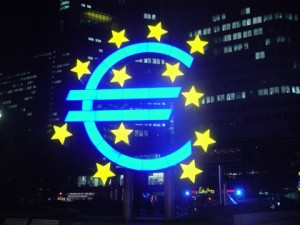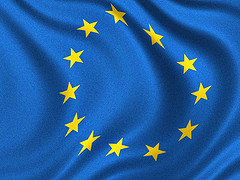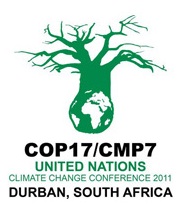
Paralysis or Metamorphosis? A debate on the Eurozone Crisis and its implications for the EU
On Wednesday, 29 February, 2012, the Oxford European Studies Centre hosted two esteemed guests: Daniel Cohn-Bendit, co-president of the European Greens in the European Parliament and renowned activist of the French left; and Edouard Gaudot, researcher for the European Greens and member of the Spinelli Group. The event offered a lively discussion regarding the ramifications of the European crisis, particularly in light of recent events regarding the Greek debt. Mr. Cohn-Bendit began the debate by characterizing the current climate as “a turning point in European history, because the European Union is confronted with one of its most serious crises, caused by the financial crisis”. In reference to its efforts to grapple with economic catastrophe, he contended that the EU is …
The risks of the current approach to Greece and the Euro-crisis
Last week, I debated how much more the Greek nation can take given the enormous internal and external pressures on families, society and the nation. When discussing this with my friend and colleague Pavlos Efthymiou, we realised that some important points were missing and have rewritten the article together (also published on ELIAMEP). Mainstream International Relations (IR) thinking (see Realism, Liberalism) holds that the national interest drives states to act the way they do on the international stage. This post-hoc rationalising to explain policy outcomes works successfully enough to be employed by the majority of policy-makers, academics, and analysts to inform their audiences. However, what they are often missing is how such an interest comes about and what it is …

Voters’ Block: Will EU governments hold referendums on a new treaty?
As the European Union lurches from crisis to crisis, the chances of getting a new EU treaty are on the rise. Such a new treaty might be the ‘Treaty on Stability, Coordination and Governance in the Economic and Monetary Union’, which is due to be signed in March by all EU members apart from the Czech Republic and the UK. Or, if the worst fears of the Eurozone countries are realised and Greece defaults, a new treaty will be necessary to clean up the ensuing mess. Although most attention tends to focus on the ins-and-outs of treaty negotiations, once a treaty has been signed it still has to be ratified by each country. And the ratification process has rarely gone …

Towards a Realizable Progressive Politics: A Q&A with Dr. Sophie Heine
Dr. Sophie Heine is a visiting scholar at the University of Oxford Department of Politics and International Relations, a Research Fellow at the Universtité Libre de Bruxelles and FNRS and a Wiener-Anspach Foundation Scholar; her research engages with identity politics and ideology in contemporary Europe. Here, she takes a moment to speak with Politics in Spires regarding the Occupy protests of 2011, and offers a preview of her forthcoming book. I. Your recent work, Oser penser à gauche (“Dare to think to the left”), argues that contemporary progressive politics must redefine its underpinning ideology and articulate a coherent, emancipatory platform for change. This analysis proves particularly relevant to the waves of “Occupy” protests that began in New York in October …

Cameron taking UK out of Europe without a referendum?
When the ‘make or break’ summit to save the euro finished in Brussels on Friday afternoon, David Cameron headed rapidly for the exit without the traditional end of summit press conference (making do, unusually, with only an interim pre-dawn one as the leaders stumbled out from their almost ten hours overnight talks for a short break before breakfast). As the dust settles from this critical summit, the gap between the UK and other European countries has never been wider, nor the UK’s influence closer to zero. As Tory sceptics applaud what any sane observer would call a major foreign policy disaster, could it be that Cameron is in the process of taking the UK out of the EU without a …

EU and China’s institutional diplomacy in the field of climate change.
Forthcoming Occasional Paper to be published by the European Union Institute of Security Studies (EU ISS). Author: Pietro De Matteis. Summary and Policy Recommendations. This Occasional Paper aims at giving another perspective on the relevance of climate change for the EU’s foreign policy. Considering its linkages with various policy areas such as energy security, economic growth, foreign policy and even political stability, climate change is a major “game-changer” in international relations, and constitute a significant opportunity to reshape the international order according to the new global equilibria. As such, the set up of the climate change regime constitutes for the EU both an opportunity and a threat, in as much as it may either accelerate Europe’s decline as a …

Turkey in the world – between continuity & change
Just returned from a talk by the current Turkish Ambassador to the UK. The event was under Chatham House Rules, hence I will not be able to report from it. But I will use this and previous events in the last couple of weeks as an anchor for some reflections on Turkish Foreign Policy. // A rising power… Last week Davutoglu, Babacan, Boris Johnson and Jack Straw gave some interesting speeches at a dinner in London. The overall tone was clear: Turkey is a rising regional if not global power. It is the 16th biggest economy in the world with phenomenal stable growth figures currently approximately at around 8% per annum. Erdogan is a leader empowered with all three Weberian …

Europe in the Soup: Three Scenarios
In ‘Duck Soup‘ – the 1930s Marx brothers’ film – a powerful rich lady tells the ailing government of Freedonia, she will only bail them out with another loan, if her favourite – Groucho Marx – becomes president: chaos follows. Europe may or may not escape chaos as the euro crisis unfolds. But when asking what sort of European Union will emerge out of the Duck Soup of the crisis, there are no upbeat scenarios. Desperate Politics drives all scenarios The euro crisis has battered the EU’s political dynamics, clout and democratic credentials. The sight of technocrats running the Greek and Italian governments has been criticised as anti-democratic . But Europe’s political failings go beyond this. Neither Angela Merkel nor …









